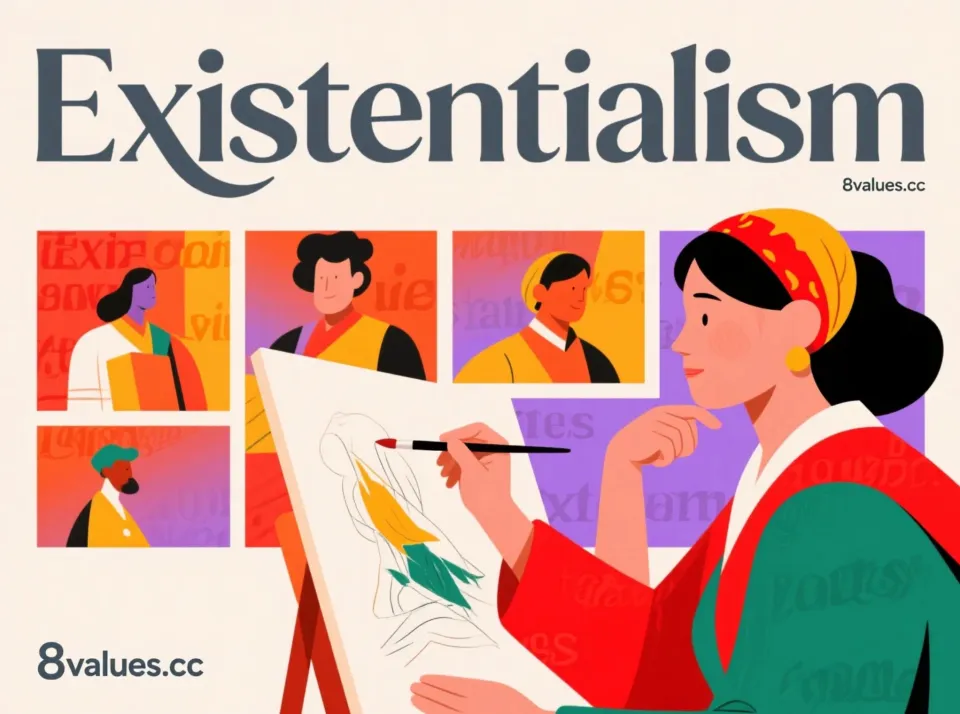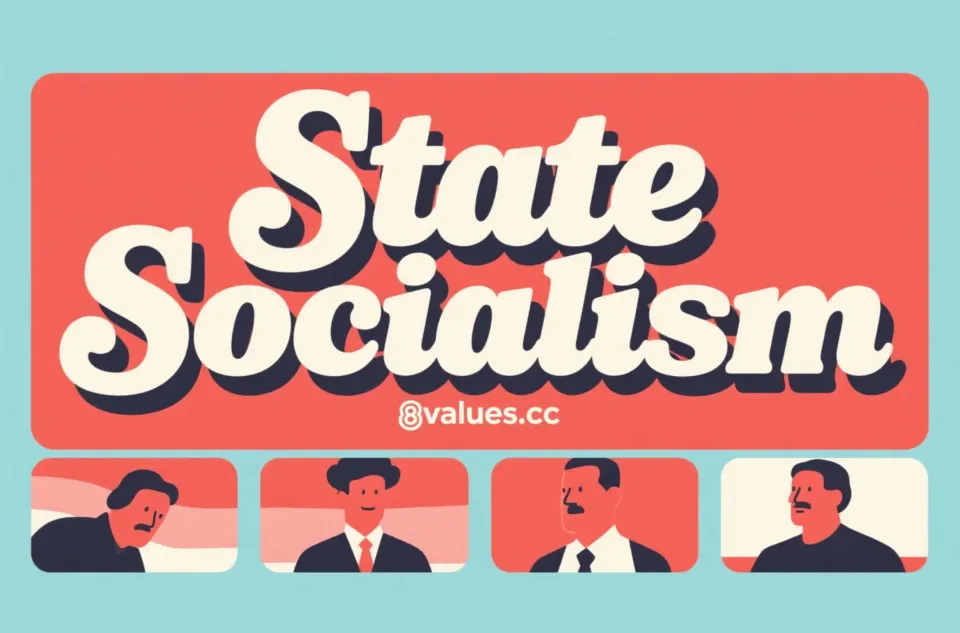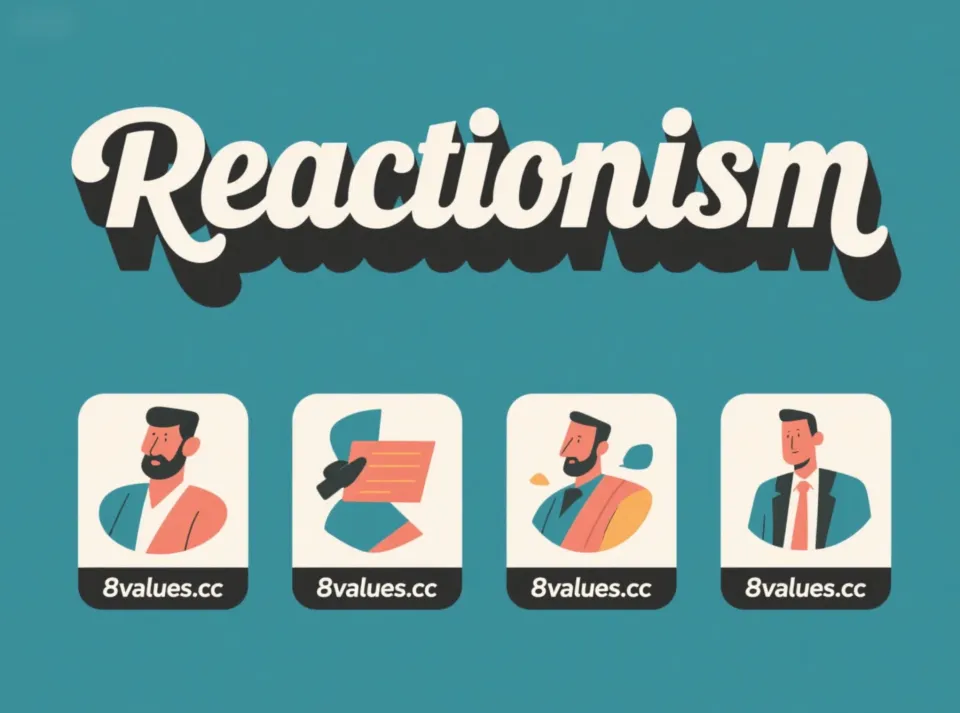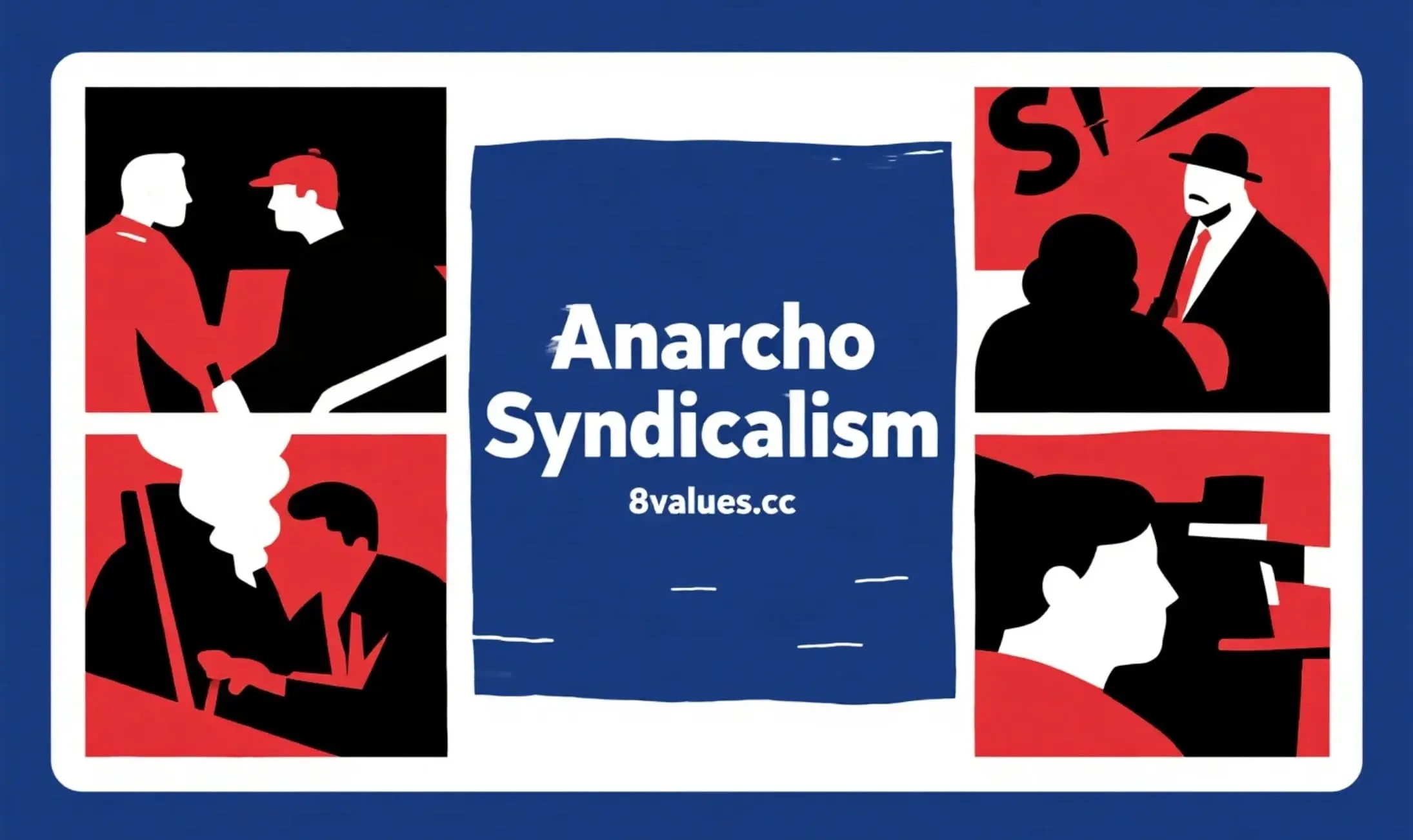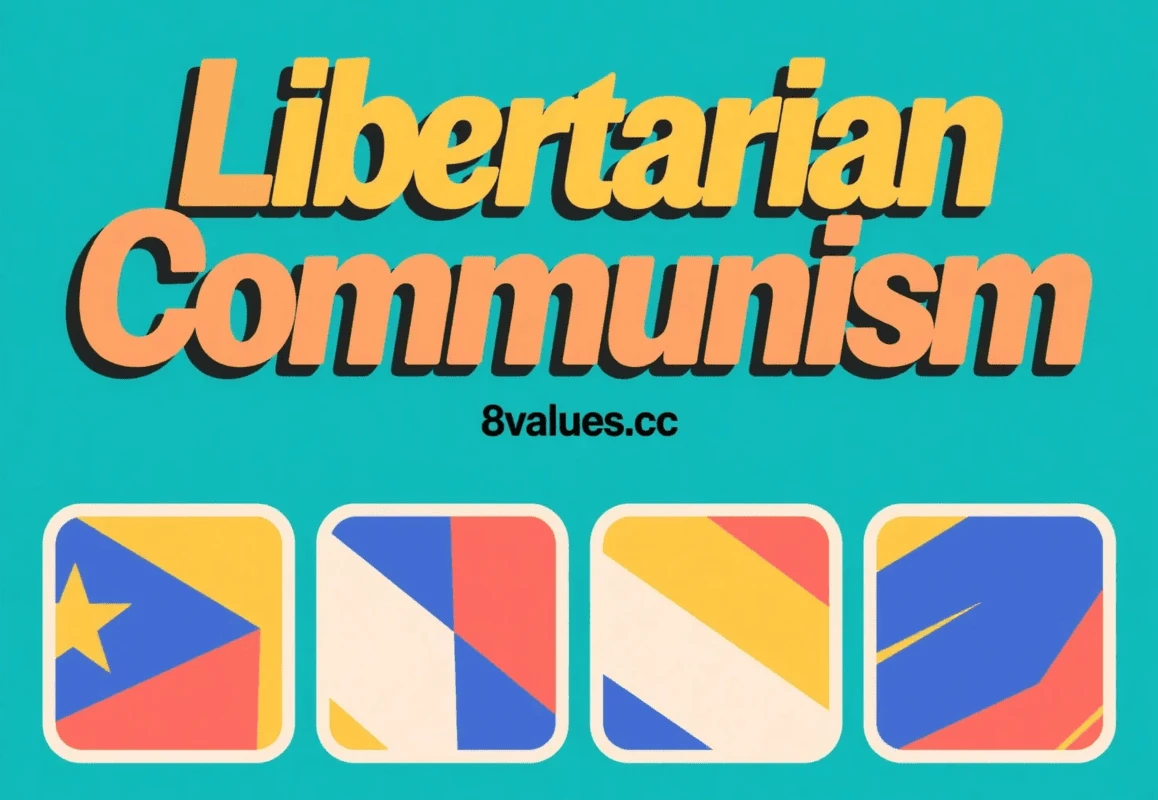Cos'è l'esistenzialismo? Comprendi la filosofia della libertà, della scelta e dell'auto-formazione
Una discussione approfondita dell'esistenzialismo, una tendenza filosofica che enfatizza la libertà personale, la responsabilità e il significato della vita. Comprendi il suo concetto fondamentale "esistenza prima della natura", autenticità e ansia ed esplorare come modella i tuoi valori e le tue scelte di vita. Unisciti ora al nostro test ideologico di 8 Values e scopri il tuo supporto per il pensiero filosofico.
Nel viaggio della vita, ti sei mai fermato, fissato il vasto cielo stellato, pensando a "Perché esiste?" o "Qual è il significato della mia vita?" Queste grandi domande non sono uniche per le persone moderne, ma profonde domande nella storia umana. Pensare a questi problemi diventa particolarmente urgente quando le credenze tradizionali e gli ordini consolidati si scuotono gradualmente e ci troviamo gettati in un mondo che sembra non avere un significato interiore. È in questo contesto che l'esistenzialismo entra, in un modo approfondito e profondo, mette l'individuo al centro dell'indagine filosofica, sottolineando la libertà, la scelta di tutti e l'enorme responsabilità che segue.
L'esistenzialismo non è solo una teoria accademica, è anche un atteggiamento filosofico su come vivere e su come affrontare le sfide nella vita. Si rifiuta di vedere gli esseri umani come l'esistenza della natura preimpostata o dei ruoli consolidati, ma piuttosto come soggetto che crea e si definisce costantemente. Comprendendo le idee fondamentali dell'esistenzialismo, otterrai una prospettiva completamente nuova per guardare la tua vita e modellare coraggiosamente il tuo futuro.
L'esistenza precede l'essenza: la pietra angolare dell'auto-definizione
L'affermazione più fondamentale e più rivoluzionaria dell'esistenzialismo è che " l'esistenza precede l'essenza ". Questo concetto sovverte l'opinione che "l'essenza precede l'esistenza" nella tradizionale filosofia occidentale. Nei pensieri filosofici tradizionali, come Aristotele o filosofia scolastica medievale, che qualsiasi cosa ha una natura o una natura preesistente e fissa che determina il suo "ciò che è". Ad esempio, il designer di un cutter di carta concepisce per primo il suo scopo (essenza) prima di farlo (esistenza).
Tuttavia, gli esistenzialisti credono che questo non sia il caso degli esseri umani. Non siamo nati con un "manuale" o "progetto" preimpostato. Invece, esistiamo prima: essere "gettati" nel mondo. Solo dopo che esistiamo, attraverso ogni scelta e azione che facciamo, possiamo iniziare a definirci e modellare la nostra essenza. Come diceva Jean-Paul Sartre, "Un uomo non è nulla se non si crea se stesso". Ciò significa che la tua identità, valori e obiettivi nella vita non sono determinati da forze esterne o da qualsiasi verità precedente, ma sono costantemente creati e stabiliti da te.
Questa enfasi sull'auto-definizione fa sì che tutti abbiano possibilità illimitate per essere chiunque vogliano essere. Questo è il nucleo del potere e della liberazione della filosofia esistenziale. Vuoi avere una comprensione più profonda di come le tendenze e i valori personali influenzano le tue scelte? Forniamo test di orientamento politico a 8 valori gratuiti per aiutarti a esplorare te stesso.
Libertà e responsabilità: regali pesanti
Poiché "l'esistenza precede l'essenza", gli esseri umani hanno una libertà assoluta . Non siamo più soggetti alla volontà degli dei, delle norme sociali o di qualsiasi "natura umana" presupposta. Questa libertà è approfondita, significa che stiamo scegliendo ogni momento, anche se scegliamo di non scegliere, è una scelta in sé. Tuttavia, questa apparentemente bella libertà è un dono pesante per gli esistenzialisti. Sartre lo ha descritto come " deciso come libero ". Non ci siamo creati, ma una volta che esistiamo, dobbiamo essere pienamente responsabili di tutto ciò che facciamo, senza alcuna scusa o motivo per sottrarlo.
Questa responsabilità non riguarda solo l'individuo stesso, ma si estende anche all'intera razza umana . Quando fai una scelta, stai modellando un'immagine di "cosa dovrebbe essere" non solo per te stesso, ma per tutti gli esseri umani. Ad esempio, se scegli di dedicarti a una causa sociale o decidi come trattare gli altri, queste azioni definiscono invisibilmente il valore e le possibilità dell'umanità. L'esistenzialismo sottolinea quindi che la nostra libertà è situazionale , non astratta e infinita, ma è sempre radicata nei contesti fisici, storici e sociali specifici in cui viviamo. È in queste limitazioni che le nostre scelte diventano significative e specifiche.
Ansia e assurdità: il campanello d'allarme dell'esistenza
Affrontare la libertà assoluta e l'enorme responsabilità che segue, gli umani spesso sperimentano un'emozione profonda: ansia o paura (terrore). Questa ansia non indica qualcosa di concreto e definibile (che sarebbe "paura"), ma al vuoto e all'incertezza dell'esistenza . Questo "sporco della libertà" verrà nei nostri cuori quando ci rendiamo conto che la vita non ha significato preimpostata e che dobbiamo sopportare l'onere di creare un significato da soli.
Allo stesso tempo, l'esistenzialismo esplora spesso il concetto di " assurdità ". L'assurdità deriva dal conflitto fondamentale tra l'eterna perseguimento di chiarezza, ragione e significato degli esseri umani e un mondo essenzialmente silenzioso, disordinato e inspiegabile . Albert Camus crede che la vita stessa sia ridicola, ma questa consapevolezza non porta necessariamente alla disperazione. Al contrario, è di fronte all'assurdità che possiamo resistere e creare il nostro significato in un universo senza dei e senza verità eterna. Questo atto di creare significato è la vittoria finale dell'umanità sul nulla.
Vera natura - vivi il tuo vero io
Al fine di superare l'ansia e l'assurdità esistenziali, gli esistenzialisti sostengono uno stile di vita di " autenticità ". Innocenza significa essere fedele a se stessi e vivere secondo i propri valori e credenze, piuttosto che obbedire alla cieca norme sociali, tradizioni o aspettative degli altri.
Al contrario, è " malafede " o "autoinganno". Quando una persona sfugge alla sua libertà e responsabilità, finge che il suo significato o scopo sia dato da forze esterne (come ruoli sociali, genetica, ambienti) o rifiuta di accettare l'incertezza della vita, cade in una malafede. Ad esempio, Sartre una volta ha usato l'esempio di un cameriere per descrivere il cameriere che si equipaggia con un oggetto interpretando il ruolo di "cameriere", sfuggendo così alla responsabilità di essere un argomento libero.
L'innocenza ci richiede di riconoscere coraggiosamente e accettare il fatto che siamo individui liberi e responsabili. Ciò include l'accettazione della necessità della morte, così come tutte le contraddizioni, le incertezze e l'ambiguità nella vita. La vita autentica non consiste nel raggiungere una fine fissa, ma un continuo processo di auto-formazione che ci incoraggia a porre costantemente domande, esplorare e ridefinirci. Solo vivendo in un modo genuino possiamo ottenere una vera crescita e soddisfazione personale.
Principali pensatori e scuole
Sebbene l'esistenzialismo raggiungesse il suo apice in Francia a metà del XX secolo, le sue radici ideologiche possono essere fatte risalire in Europa nel XIX secolo. Una serie di pensatori eccezionali, tra cui filosofi, scrittori e artisti, hanno plasmato questo profondo movimento filosofico:
- Søren Kierkegaard : noto come il "padre dell'esistenzialismo". Sottolinea le scelte personali, il paradosso della fede e le fasi estetiche, etiche e religiose della vita. Sebbene fosse un cristiano devoto, i suoi pensieri hanno avuto un profondo impatto sull'esistenzialismo secolare successivo.
- Friedrich Nietzsche : famoso per la sua critica ai valori tradizionali e la dichiarazione che "Dio è morto". Ha proposto i concetti di "volontà di potere " e " Superman " (übermensch), incoraggiando gli individui a trascendere i vincoli morali tradizionali e creare i propri valori e significati.
- Martin Heidegger : il suo essere e il tempo esplora il concetto di Dasein , il modo unico di esistenza degli esseri umani. Ha sottolineato " essere -nel mondo" e credeva che l'ansia riveli il nulla dell'esistenza.
- Jean-Paul Sartre : uno degli esistenzialisti più influenti del 20 ° secolo. Ha chiaramente avanzato lo slogan "l'esistenza precede l'essenza" e ha sottolineato la "libertà radicale" dell'umanità e le responsabilità che porta e la "malafede".
- Simone de Beauvoir : compagno per tutta la vita di Sartre e importante collaboratore e un eccezionale filosofo femminista. Il suo libro The Second Sex usa una prospettiva esistenziale per analizzare profondamente la situazione e la liberazione delle donne. Ha sottolineato la realizzazione della libertà attraverso l'azione e ha proposto un concetto etico basato sul " riconoscimento ".
- Albert Camus : Sebbene rifiuti l'etichetta di "esistenzialista", le sue opere come lo straniero e il mito del Sisifo esplorano profondamente i temi dell'assurdità, della resistenza e della libertà . Sostiene di trovare significato in assurdità e diventare un "eroe assurdo".
Sebbene questi pensatori abbiano opinioni diverse, si concentrano tutti sulle questioni fondamentali degli esseri umani e sottolineano il ruolo delle singole esperienze e azioni soggettive nella costruzione di significato. Esplora in che modo le ideologie diverse influenzano la società e gli individui? Si prega di consultare il nostro sito Web per un'introduzione dettagliata a tutti i risultati di 8 valori .
Il profondo impatto dell'esistenzialismo
L'influenza dell'esistenzialismo va ben oltre il campo della pura filosofia e penetra profondamente in letteratura, arte, film, psicologia e tendenze sociali dal 20 ° secolo.
Nei campi della letteratura e dell'arte , temi esistenziali come l'alienazione, l'ansia, il nulla e la ricerca del significato sono pienamente riflessi nelle opere di scrittori come Dostoevsky, Kafka e Beckett. Direttori cinematografici come Ingmar Bergman, Kurosawa, Stanley Kubrick, Christopher Nolan esplorano anche il dilemma dell'esistenza, il peso della libertà e la lotta degli individui in un mondo incerto attraverso le loro opere.
Nei campi della psicologia e della terapia spirituale , l'esistenzialismo ha aperto la strada alla psicologia e alla terapia esistenziale . Psicologi come Rollo May e Viktor Frankl applicano approfondimenti esistenziali alla pratica clinica per aiutare le persone a far fronte ai dilemmi psicologici affrontando l'ansia, trovando significato e assumendosi la responsabilità. La "logoterapia" di Frankel sottolinea il potere di scoprire il significato nella sofferenza.
L'esistenzialismo ha anche influenzato profondamente le critiche sociali e il pensiero politico . Incoraggia le persone a mettere in discussione le norme sociali, criticare il pensiero della "folla" del collettivismo e sottolinea la responsabilità etica di raggiungere la libertà per gli altri . Questa attenzione alla libertà personale e alla responsabilità sociale ha ispirato lo sviluppo di pensieri politici diversificati come il femminismo e il movimento di liberazione sociale.
La differenza tra esistenzialismo e nichilismo
Poiché tutti coinvolgono l'interrogatorio del significato della vita, l'esistenzialismo è spesso frainteso come nichilismo. Il nichilismo crede che la vita non abbia significato o scopo interiore . Sebbene l'esistenzialismo ammetta che il mondo stesso non ha un significato presupposto , si oppone fortemente a cadere nella disperazione e nell'inazione.
Al contrario, l'esistenzialismo crede che sia proprio perché la vita non ha un significato preimpostato che abbiamo la libertà e la capacità di creare significato . È una filosofia di azione che ci invita a impegnarci attivamente nella vita e dare un valore unico alla nostra esistenza attraverso le nostre scelte, impegni e azioni. L'esistenzialismo è ottimista perché pone il destino dell'umanità nelle sue mani.
Conclusione: modellare il tuo percorso di vita
L'esistenzialismo ci invia un messaggio fondamentale: la tua vita non è una storia pre-scritta, ma una narrazione creata da te . Sottolineando la libertà personale, la responsabilità individuale e la ricerca del significato , ci consente di affrontare le incertezze e le sfide nella vita.
In questa età in rapida evoluzione, le domande sull'identità, il significato e la libertà sono più urgenti che mai. L'esistenzialismo fornisce un potente quadro ideologico che ci aiuta a far fronte all'ansia della vita moderna, ci incoraggia a sostenere coraggiosamente l'onere delle scelte indipendenti e alla fine illumina una lampada per le nostre vite in un mondo apparentemente disordinato.
Ora, è tempo di guardare i tuoi valori e definire il tuo percorso di vita. Sia che tu stia vivendo una "crisi esistenziale" o desideri capire te stesso più profondamente, l'esistenzialismo ti invita ad affrontare la natura "assurda" della vita con coraggio e vivere il tuo vero sé unico.
Vuoi saperne di più sui contenuti approfonditi sull'ideologia politica o scoprire le tue inclinazioni politiche? Benvenuti nel nostro blog ufficiale per articoli più stimolanti!
